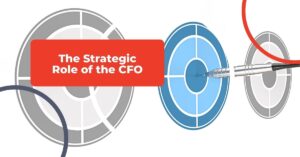Navigating the Healthcare Maze: Business Essentials & Preparing for the Future
Jan 25, 2023
Navigating the healthcare maze can be a daunting task, especially for business owners and executives. Healthcare insurance, like the healthcare industry, is complex and often confusing. With the ever-evolving healthcare system and the pervasive influence of technology, it can be hard to keep up. In this article, we will explore the discouraging inefficiencies that impact the healthcare and insurance industries, discuss advancements in healthcare technology that promise better outcomes, and uncover ways you and your business can do more with your healthcare by better understanding it.
The Fundamentals: Understanding Healthcare Insurance
Healthcare insurance is an important part of the healthcare system. It is a contract between the insurer and the insured that specifies the coverage of medical expenses for the policyholder. There are different types of insurance available, including health maintenance organizations (HMOs), preferred provider organizations (PPOs), and point-of-service (POS) plans.
Businesses should also be aware of the various laws and regulations governing healthcare insurance, including the Affordable Care Act, which requires businesses to offer health insurance to their employees or face a penalty. Businesses should also ensure they comply with the Employee Retirement Income Security Act (ERISA), which governs employer-sponsored health plans.
Sound complicated? It is. As we know from being consumers in healthcare, the red tape and intermediaries make healthcare and the healthcare insurance industry seem pretty complicated. Healthcare insurance is different from other forms of insurance, such as life or auto insurance, in that the person receiving the healthcare services typically does not pay for them directly, but rather the insurance company pays for them. The revenue model is unique, and it’s sometimes tough to know who the “customer” is – the person receiving healthcare, or the insurance company that’s actually paying for it.
Healthcare providers must make sure they are in network with insurance companies to avoid costly fees. Managed care insurance companies have traditionally put obstacles in the way of providers getting paid, such as not dotting the I’s and crossing the t’s, and long payment processes. Add to all this the intervention of government with Medicare and Medicaid, it’s sometimes hard to untangle what’s possible from what’s practical.
The Role of Technology in Healthcare
Technology has revolutionized the healthcare industry. From electronic health records to telemedicine, technology has transformed how healthcare is delivered and managed. For businesses, this means more efficient healthcare services and better patient care.
For example, electronic health records (EHRs) enable healthcare providers to store patient information in one secure, centralized system. This makes it easier for healthcare providers to access patient information quickly and accurately. Telemedicine, meanwhile, allows healthcare providers to consult with patients remotely, reducing the need for in-person visits.
Still, how many of us visit the doctor and receive paper attached to a clipboard to fill out the basics? Inefficient processes that are prone to human error impact efficiency in healthcare, no question. Healthcare technology is lagging behind the rest of the world, but there is change happening. Some offices provide iPads or similar devices for patients to fill out information, and access medical records and doctor’s notes online.
The Impact of Healthcare Technology on Businesses
Technology will continue to have a profound impact on the business of healthcare. It has enabled businesses to improve their patient care, reduce costs, and increase efficiency. For example, businesses can use technology to streamline their billing processes, automate administrative tasks, and track patient outcomes.
With the help of technology, businesses can also improve their customer service. For instance, they can use artificial intelligence (AI) to provide personalized customer experiences, target specific customer segments, and improve customer satisfaction.
Preparing for the Future of Healthcare
The future of healthcare is difficult to predict, but it is certain that technology will continue to play an increasingly important role. Businesses and consumers should prepare for the impact of emerging technologies, such as cloud computing, wearables and Internet of Things (IoT) devices, on their healthcare operations.
Businesses should also prepare for the potential disruption of healthcare delivery models. The emergence of telemedicine has already forced businesses to adapt their operations to meet the needs of their customers.
Conclusion
The major changes in healthcare that are expected to continue are the increased usage of technology and an emphasis on quality and outcomes, rather than quantity. Insurance companies are looking for ways to measure quality and pay based on outcomes, such as how quickly a patient heals from an injury, rather than the number of necessary visits. What this will mean for employer-offered insurance and the experience of the insured isn’t clear, but we’re likely headed into rapid change.
Navigating the healthcare maze can be a difficult task, which is why entire industries are built around helping HR, enterprises and small businesses manage it. Consider healthcare insurance part of the systems and processes that help your company run. By understanding the fundamentals of healthcare insurance, leveraging the latest healthcare technology, and preparing for the future, businesses can ensure they are well-equipped to deliver the best, most efficient and most affordable options to employees while also fitting the business’s needs.


